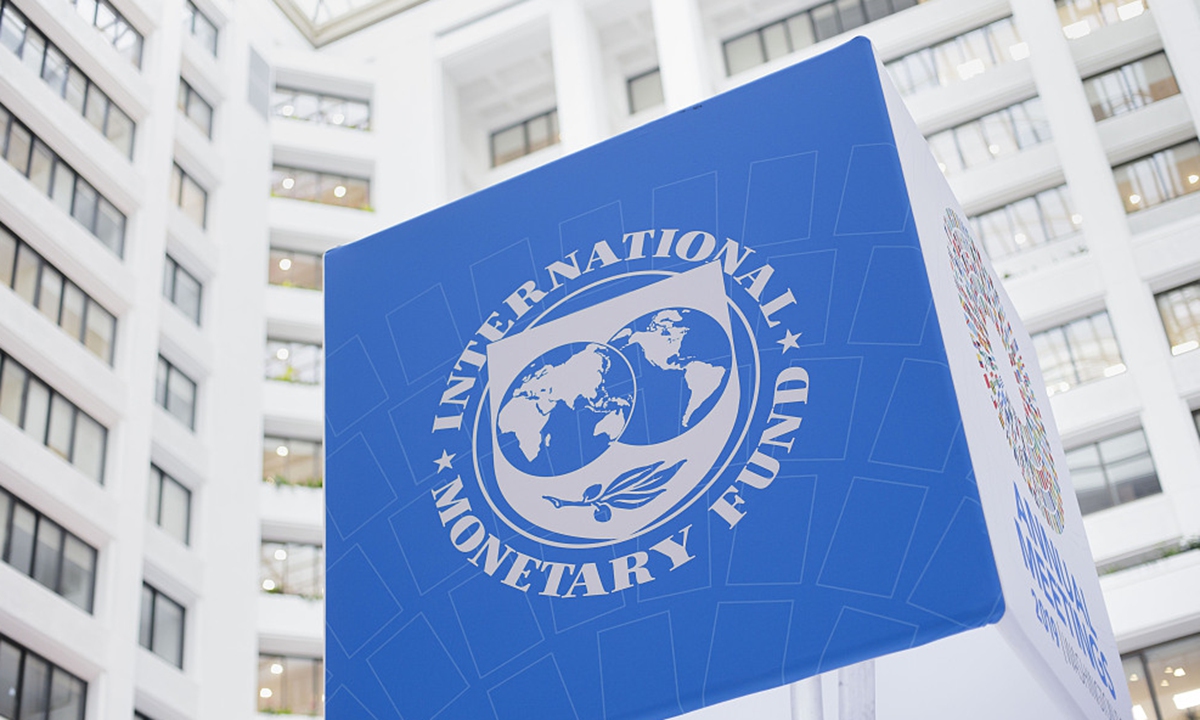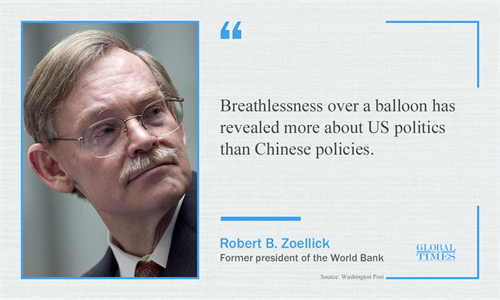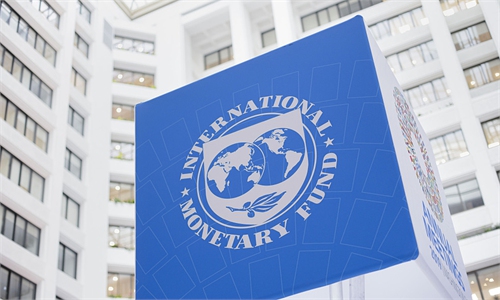
IMF Photo: VCG
France is scheduled to host a financial summit in Paris from Thursday to Friday, planning to address issues such as the reform of international multilateral financial institutions. In a recent article, UN Secretary-General Antonio Guterres criticized the International Monetary Fund (IMF) and World Bank and called for bold and resolute reform in the two.
Although criticism of global governance has intensified as unilateralism has become rampant, it is unusual that the current Secretary-General of the UN makes such a bluntly criticism, fully revealing that global economic governance is losing its foundation of trust.
Current global economic governance reflects more of the will of hegemony. The IMF and the World Bank were established after World War II. As the two major international financial pillars of the Bretton Woods System led by the US, they became tools for the US to maintain the post-war international financial hegemony.
Although the Bretton Woods System ended as the US economic strength declined and the US dollar was unpegged from gold, the hegemony of the US dollar and the international financial system built by the US have been maintained. An extreme example is that some underdeveloped countries such as Micronesia directly use the US dollar as their currency, and their financial sovereignty is deeply attached to the US. This is why the US continuously adopts irresponsible monetary policies to spill over domestic inflation and make the world pay for its economic recession.
The daily operation and management of global economic governance is dominated by hegemony. For a long time, the President of the World Bank has been American citizens nominated by the US President, while the position of IMF President has been held by Europeans. At the same time, the decision-making power of the IMF and the World Bank is different from that of one country, one vote in other international organizations such as the UN, but the distribution of equity determines the size of the voting power. Therefore, the US and Europe control the decision-making power of the IMF and the World Bank, and African countries have only very few voting rights.
In institutions such as the World Bank, different countries can play very different roles because of their different economic and political strengths. In addition, it can be seen from the relevant provisions of these two institutions that the US controls the financial system, and this is also doomed to unfairness in the world's financial field.
The demands of developing countries have long been neglected. Global economic governance has not treated the development demands of the Global South countries fairly. The existing structure and rules of the IMF and World Bank unfairly favor developed countries, while less developed countries benefit from these two institutions to a far lesser extent than developed countries. Guterres described the IMF and World Bank 's response to the COVID-19 pandemic as a "glaring failure" that left dozens of countries deeply indebted.
During the COVID-19 pandemic, the G7, which is regarded as the representative body for developed countries, received a total of $280 billion in funds from the IMF, while African countries received only about $34 billion in total. The total population of the G7 is about 770 million, while the combined population of the African continent is about 1.3 billion. This discrepancy in support is in line with the IMF's existing rules, but morally wrong.
Therefore, Guterres called on the IMF and the World Bank to correct long-standing mistakes , biases and injustices rooted in the existing international financial architecture, including increasing the representation of developing countries on the executive boards of these two institutions, promoting the reform of IMF quotas and improving the use of funds.
The US uses its hegemony to demand that developing countries choose sides in global governance. At present, many developing countries complain that the borrowing rules for the IMF and the World Bank have increased their debt burden, and the "debt sustainability framework" used by these two institutions for assessment has also been marked by the hegemonic will of the US. Debtor countries who stand in with the US can often get higher scores, and countries that do not follow the lead of the US not only have difficulty obtaining development loans from these two institutions, but also find it difficult to get help from other sources of international capital due to deterrence by the "authority" of these two institutions.
Global economic governance reform is imperative. The US has ramped up its export of values to global economic governance, which has caused widespread dissatisfaction among Southern countries. Recently, US Treasury Secretary Janet Yellen said that international financial institutions like the IMF and World Bank "reflect American values" and serve as key counterweights to China. The UN cannot bow to the hegemonic countries of the US and the West on such issues, because this is the time when many developing countries really need the UN to stand up and uphold justice.
A growing number of emerging economies are questioning why the rules and structures of these two institutions are not in line with the status quo of global development, and there are constant calls for reform. With the rise of emerging countries, more and more countries realize that there is little hope of relying on the self-reflection of developed countries to reform the global economic system. This is why the calls for "de-dollarization" have become increasingly louder.
At present, geopolitical conflicts and anti-globalization challenges are intensifying. The world is undergoing major changes unseen in a century. Reforming global economic governance is crucial to promoting a broad-based post-epidemic recovery and rebuilding confidence. This time Guterres directly called for the reform of the IMF and the World Bank, which shows that the reform of the current global economic governance system has reached an imminent stage. Therefore, reforming and building a more just, reasonable and inclusive governance system that reflects the demands of the widest range of members is the only correct way out of the current imbalance holding back the global economy.
The author is professor with School of International Relations and Diplomacy, Beijing Foreign Studies University. bizopinion@globaltimes.com.cn


